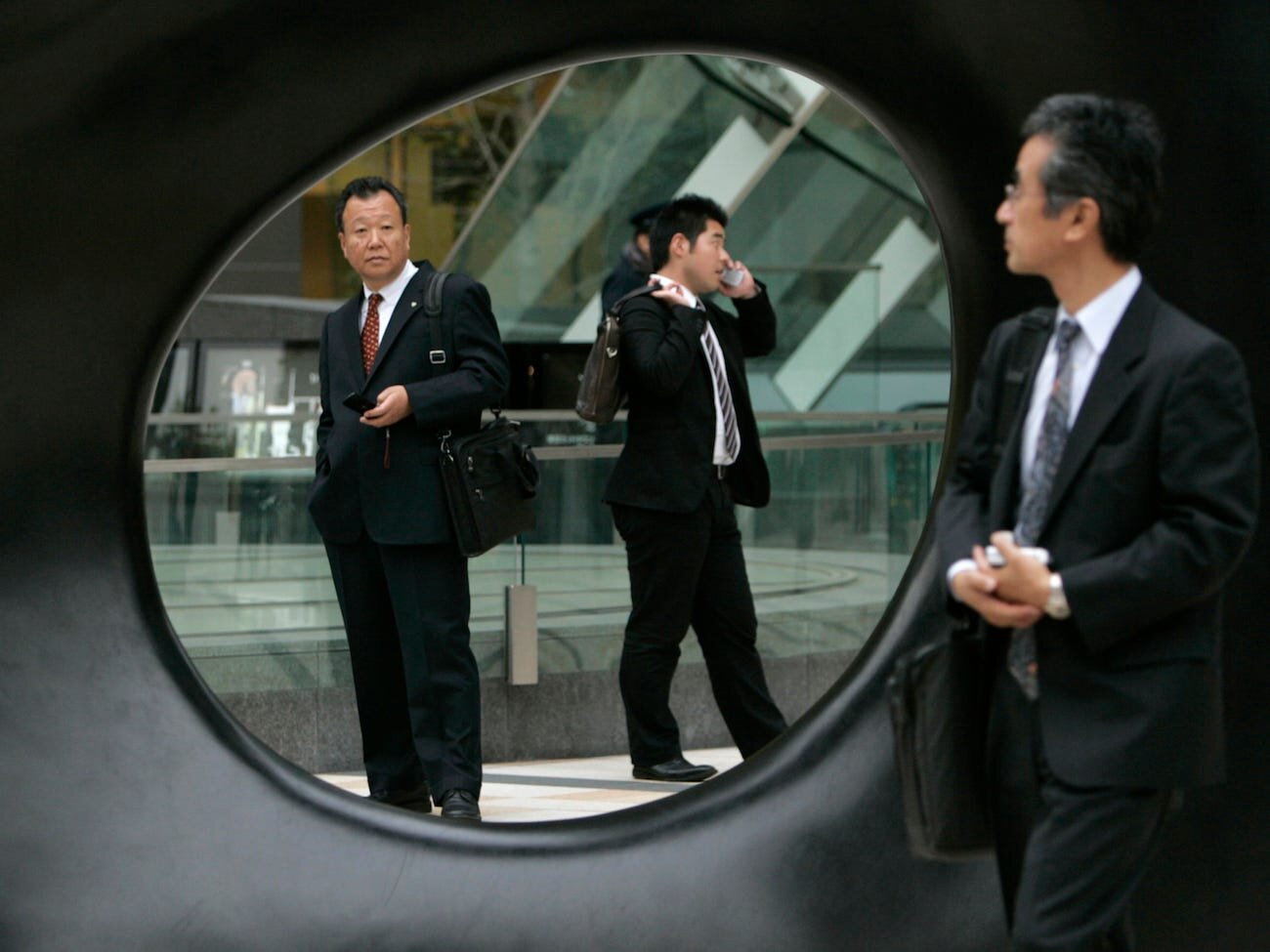5 major differences between Japanese and American workplaces
Many major companies, such as Amazon, Alphabet, and Facebook, now have tens of thousands of employees around the world, and there are some lucrative opportunities overseas. Japan, for instance, is accepting more foreign workers.
But before you hop on a plane, know that office culture still varies greatly among countries. How many hours you are expected to work, how you dress, your relationship with your boss and coworkers, and more can vastly change depending on where you are.
I grew up in the U.S. and lived in Tokyo for half a year. These are the biggest differences I noticed between American and Japanese work culture:
Japanese workplaces are more formal
Americans are more casual in the office than in Japan, Noriyuki Matsuda, founder of consumer-facing software publisher SOURCENEXT, previously told Business Insider.
He said Japanese workers would be surprised that everyone calls each other by their first names at work. "This would be considered rude in Japan," he said.
When I was living in Tokyo, I lived just off Kasai Station in Edogawa, an area with a large population of professionals. I noticed that, as far as dress codes go, the idea of "business casual" does not appear to exist in Japan, and seeing commuters in bright colors is rare.
Most businessmen, called "salarymen" in Japan, wear gray, navy, or black suits and are almost always wearing ties, even in the summer. I saw several career women wearing the exact same outfit: a white button-down shirt with a navy or black blazer and a matching skirt, pantyhose, and black kitten heels with their hair tied back in a ponytail.
In Japanese companies, employees must get their superiors' approval whenever they make a decision
Many Japanese companies adhere to a mantra called ho-ren-so, according to a paper from Doshisha University in Kyoto, Japan. Ho-ren-so is a mnemonic device that combines the first syllables of three verbs: Houkoku (report), renraku (contact), soudan (consult).
This means that an employee in Japan must always keep their superiors informed about what they are doing. Every decision, no matter how small it may seem, should go through the chain of command and get the stamp of approval from the boss. Employees should immediately report any problems to their bosses before trying to take care of anything on their own.
American workplaces focus on the individual; Japanese workplaces focus on the group
American professionals are generally most interested in furthering their own careers.
In his book "When Cultures Collide," British linguist Richard Lewis charted the differences among leadership styles around the world. He found that American workplaces generally follow a system of "structured individualism."
"American managers … are capable of teamwork and corporate spirit, but they value individual freedom and their first interest is furthering their own career," he said.
East Asian countries, on the other hand, are more focused on the group. "[They] tend to have a Confucian hierarchy, where the group is sacred and leaders are seen as benevolent," Lewis said.
Japanese workers are often expected to party with coworkers after hours
Whenever my friends and I went out for karaoke or a nomikai — a drinking party — we often saw groups of salarymen drinking and socializing.
Japanese coworkers often hang out as a group after work. While it is not necessarily required, it is socially expected to a certain degree. Plus, it can be a helpful way to forge strong relationships and work your way up the ladder.
In both countries, employees work long hours and take few breaks
As different as the countries' work cultures are, there is one key similarity — both Japanese and American employees work long hours and do not take many vacations compared to other developed countries.
Japan is notorious for its long work hours. There is even a phenomenon in the country where people have died from working too much. It is called karoshi, which literally means "death by overwork."
But according to data from the Organization for Economic Co-operation and Development, American workers clocked in more average annual hours than Japanese workers in 2016.
Furthermore, the average American employee only takes about half of their allotted paid time off or vacation time, according to a 2017 report by Glassdoor. And over 60% of respondents reported working during vacations.
Similarly, a survey by Expedia found that Japanese workers only take around half of their vacation days, and many workers reported feeling guilty whenever they took time off.


